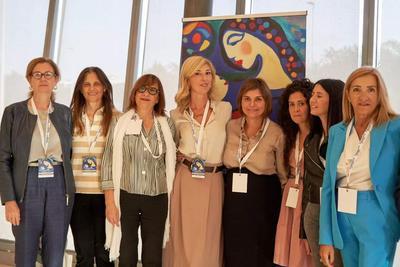Loading...
The Life-MILCH project at the 19th edition of the “International Workshop on Neonatology and Pediatrics”
21-10-2023/
Posted by
Federica Piccoli/



The Life-MILCH project’s team was invited at the 19th edition of the "International Workshop on Neonatology and Pediatrics” hosted in Cagliari, on October 18th-21st. The event was planned and coordinated by Prof. Vassilios Fanos (University of Cagliari – partner of the Life-MILCH project).
On the first day an entire congress session was dedicated to the preliminary results from the latest analysis of the Life-MILCH data. The following members of the project’s team joined the meeting: Dr Silvia Petza, Dr Roberta Pintus and Dr Cristina Piras, University of Cagliari; Professor Paola Palanza, Professor Maria Elisabeth Street and Professor Serafina Perrone, University of Parma; Professor Anna Maria Papini, University of Florence.
On this important occasion, updates regarding the conclusion of the first phase of the project were conferred, stimulating an interesting discussion around the topic from the audience attending the conference. “During the first phase of the project, +670 mother- baby pairs were recruited. These dyads were evaluated at different stages: at birth, at 1-3-6-12 months of age to assess growth and physiological/neurobehavioral development of the infants. In addition, samples of breast milk and urine from the mother and child were collected” says Prof. Paola Palanza, Life-MILCH project coordinator “These samples have already been partly tested for the presence of different endocrine disruptors. We are finalizing this part of the project to provide a snapshot of the actual environmental exposure to which mother- baby couples are subjected. This preliminary phase will help us develop an educational and informational campaign targeted to pregnant and breastfeeding women and all young women. Based on the data we have collected and on the correlation between the levels of endocrine disruptors found in milk, the mother's eating habits and lifestyle, we will provide an intervention policy and a vademecum with few recommendations for pregnant and breastfeeding mothers in order to raise awareness on the surrounding environment”, concludes Prof. Palanza.
